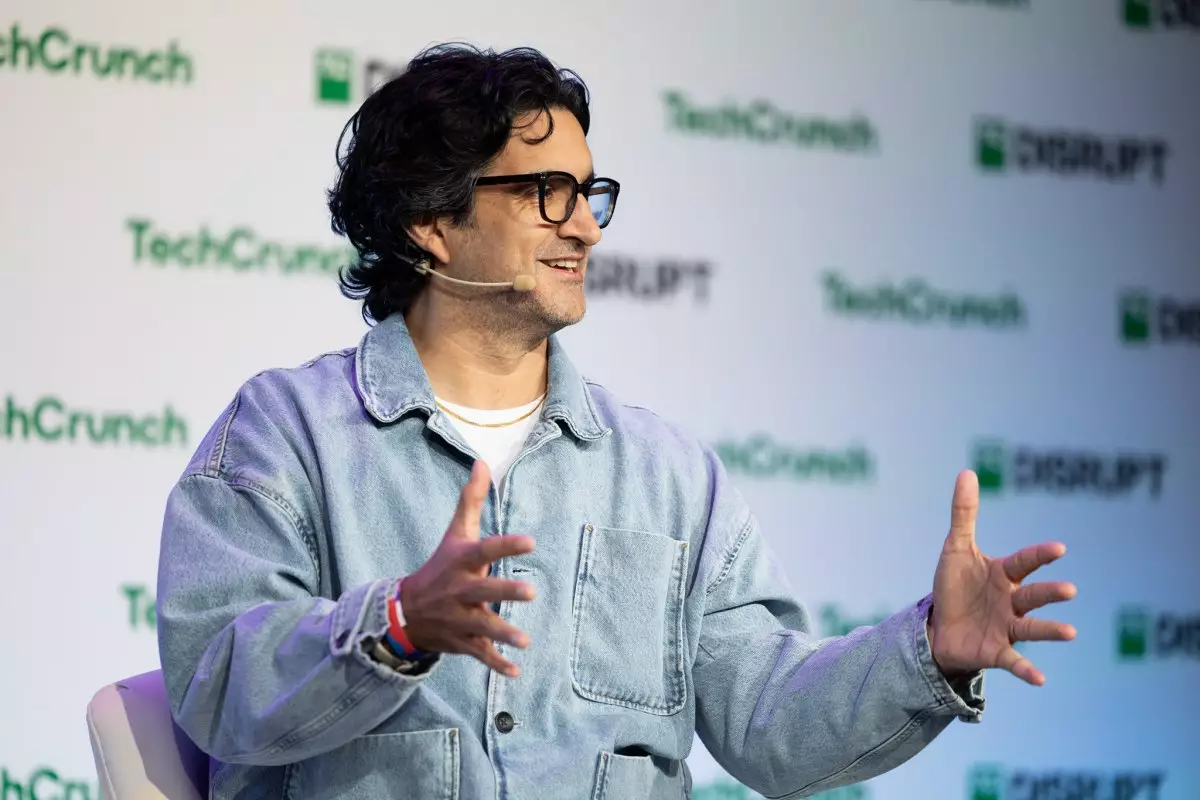Andy Dunn, the visionary who founded the men’s clothing brand Bonobos, is charting a new course with his latest venture, an in-person social media platform named Pie. His new endeavor not only highlights his resilience as an entrepreneur but also underscores the profound lessons he learned throughout his tumultuous journey with Bonobos, which culminated in a staggering $310 million exit. Yet, as Dunn reflects on his experiences, it becomes clear that the most impactful lessons extend beyond the realms of business strategy and profitability; they delve into the deeply personal aspects of mental health.
Dunn’s candid acknowledgment of his battle with bipolar disorder has become a focal point of his narrative. Diagnosed during his college years, he faced relentless storms of mania and depression, often untreated until a revelatory hospitalization in 2016. “Experiencing mania is like existing in a state of psychosis—delusions can cloud judgment as rapidly as they appear,” Dunn shared during his appearance at TechCrunch Disrupt 2024. This wake-up call compelled him to prioritize his mental well-being, leading him to embrace therapy, medication, and disciplined sleep patterns.
In his book, “Burn Rate: Launching a Startup and Losing My Mind,” Dunn intricately weaves together his entrepreneurial journey with his struggles against bipolar disorder. His insights resonate universally among entrepreneurs, revealing that mental health is an essential aspect of the human experience—not just a concern for those grappling with a diagnosis. Dunn eloquently states, “We all have mental health,” challenging the stigma that often relegates mental illness to the shadows of corporate discourse.
Research indicates that entrepreneurs experience rates of mental health challenges higher than the general population—a fact supported by Dunn’s observations. He posits a compelling theory that the nexus between creativity and neurodivergence may attract individuals with unique cognitive profiles to entrepreneurship. “The characteristics of hypomania—rapid thought processes, heightened creativity, and a surge in energy—align strikingly with what it means to be an entrepreneur,” he explains. Yet this high-energy state often comes at a severe cost, leading to debilitating depressive episodes.
Dunn’s admission about the complexities of leadership while managing hypomania is both refreshing and eye-opening. He candidly confronts the drawbacks of his elevated states, noting that heightened irritability can stifle collaboration—an essential element in a thriving workplace. Reflecting on his leadership style at Bonobos, he expressed a newfound appreciation for open dialogue. “In my new role at Pie, I value dissent,” he asserts. Encouraging robust discussions and disagreements fosters better decision-making—a stark contrast to his earlier inclinations to dismiss opposing viewpoints.
Despite progressive conversations around mental health, Dunn notes that stigma persists within the entrepreneurial ecosystem. As an adviser to the Founder Mental Health Pledge, he emphasizes the responsibility of investors to champion the mental health of the founders they support. His advice for founders contemplating disclosure of their mental health struggles? Exercise caution. He suggests waiting several weeks post-funding before revealing personal challenges, integrating pragmatism into the conversation around vulnerability.
Transforming Challenges into Strengths
While Dunn’s openness about his bipolar disorder may seem like it would jeopardize fundraising efforts, the reality tells a different story. His new platform, Pie, successfully secured a Series A funding of $11.5 million, reflecting that investors are beginning to recognize the strength that vulnerabilities can bring to entrepreneurial pursuits. Dunn describes his approach to managing bipolar disorder as akin to an athlete preparing for competition: “I treat bipolar as my Olympic regimen. Just as every champion has a method to achieve success, I implement strategies to manage my health.”
Despite his commitment to fostering an inclusive workplace, Dunn acknowledges the inherent challenges in the startup landscape. He understands that achieving monumental success often necessitates a higher degree of commitment. “A simple 40-hour workweek isn’t feasible if we aspire to make significant changes,” he states. Rather than shying away from this reality, he proactively communicates expectations with potential recruits—defining the demands of the role while also emphasizing the benefits, including equity and personal growth.
Dunn’s reflections and transformative journey underscore the urgent need for a paradigm shift in how we perceive mental health within the entrepreneurial world. As he navigates the crucial transition from founder to leader with Pie, Dunn exemplifies the importance of embracing vulnerability while fostering an environment that prioritizes mental well-being. Founders everywhere can learn from his experiences: self-care is not just an individual responsibility, but an integral part of building a resilient, innovative, and sustainable business. The essence of entrepreneurship encompasses not just hard work and hustle, but a holistic approach to mental health and well-being that paves the way for future success.

